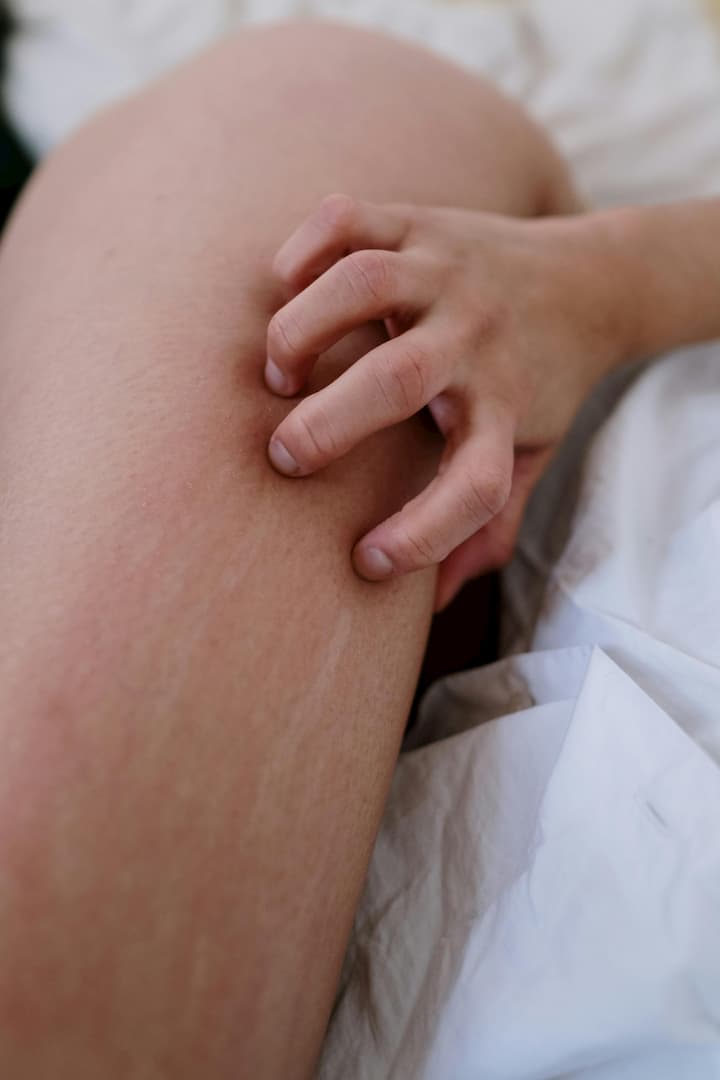
Atopic Dermatitis
Atopic dermatitis, also known as atopic eczema, is a common skin condition characterized by dry, itchy skin and rashes. It can affect both children and adults, often appearing on the face, neck, or hands. Treatment typically involves moisturizing creams and occasional use of corticosteroid ointments.
Contents:
- Symptoms of Atopic Dermatitis
- Causes of Atopic Dermatitis
- Treatment
- Self-Care Instructions
- When to seek medical care?
- How Can Dokport Help?
Symptoms of Atopic Dermatitis
Atopic skin is dry, red, and itchy, and may develop bumps or flakiness. The rash commonly appears on the face, hands, and legs.
Common symptoms of atopic dermatitis:
- Itching
- Flaky skin
- Red, dry skin
- Bumpy texture
- Occasionally, blisters or fluid-filled spots
- Thickened skin areas
Causes of Atopic Dermatitis
Atopic dermatitis may result from a weakened natural skin barrier, influenced by genetic and environmental factors. The condition is often associated with allergies and asthma.
Factors that may worsen atopic dermatitis:
- Dry or cold weather
- Certain allergens, such as dust or foods
- Sweating and overly warm clothing
- Dry skin
- Chemicals and skin irritants
- Stress
Treatment
Mild atopic dermatitis can be managed with regular use of moisturizers. Corticosteroid creams are often used to reduce inflammation during symptom flare. For severe or recurrent symptoms, a doctor may prescribe stronger treatments, such as tablet medications.
Self-Care Instructions
Daily care for atopic skin includes regular moisturizing and avoiding irritants. Moisturizers with ingredients like urea can be especially effective. Corticosteroid creams help control inflammation and itching but should be used for children under two only upon a doctor’s recommendation.
Self-care for atopic dermatitis:
- Moisturize your skin regularly
- Avoid excessive washing, and use skin oils or moisturizing cleansers instead of soap
- Choose skin-friendly materials, like cotton
- Use fragrance-free detergents and avoid fabric softeners
- Avoid scratching—wear cotton gloves at night if needed
When to seek medical care?
Contact a doctor if atopic dermatitis does not improve with self-care, if symptoms worsen, or if the rash begins to discharge fluid or appears infected.
How Can Dokport Help?
Dokport’s telemedicine clinic offers quick assistance for atopic dermatitis. Our doctors can assess your symptoms via chat and photos, provide self-care advice, and prescribe medication if needed. If necessary, we can also recommend an in-person visit with a doctor or nurse.
Expert: Dr. Anna Sipilä, MD, Associate Professor of Experimental Internal Medicine
- Tell us about your symptoms after BankID verification
- Our experienced online doctors serve without time booking
- Treatment instructions, prescriptions, certificates, referrals, follow-up